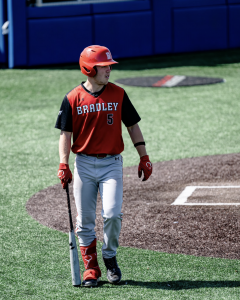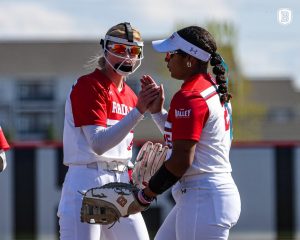Christian Yelich – Milwaukee Brewers
By Ronan Khalsa
Let’s start with this: the Milwaukee Brewers won the National League Central Division tiebreaker game and the beloved Chicago Cubs did not. The beer tastes better in Wisconsin and so does the champagne.
Let’s realize who carried the “Brew Crew” to earning home field advantage, the clear MVP Christian Yelich.
This season, Yelich doubled his home run total to 36 and increased his RBI total by 21. Is it because he played home games in the dome at Miller Park? I don’t think so, he simply adapted to the way the game is played now and started crushing dingers.
Looking strictly at Yelich’s stats from this past season, they speak highly for his case, as he nearly claimed the triple crown by almost leading in batting average, home runs and RBI’s. But I like to look at the “hidden” statistics.
Yelich stole one more base than Baez with 22, but it’s the caught stealing percentage that matters here: Baez stole successfully at a 70 percent clip. Yelich finished at 85 percent.
Baez is an infielder, admittedly a more demanding position than Yelich’s outfield spot, but Yelich committed an error 1.1 percent of the time versus Baez’s 2.5 percent.
At the plate, Baez struck out a whopping 167 times (fifth in the NL) to Yelich’s 135, in only 13 more at-bats.
Yelich hit .326 at the plate for the season and Baez .290, both are good, but look at the on-base percentage numbers: Yelich at .402 good for third best in the NL, and “El Mago” tallied .326 for 45th – two spots behind former Cubs infielder Starlin Castro. Yelich also walked 39 more times than Baez.
Lastly, Yelich leads the NL in WAR (Wins Above Replacement) at 7.9 and Baez came in at a respectful 6.3. That makes it clear that Yelich is just the better ballplayer.
Milwaukee deserves an MVP nod and the league has taken quite fondly to the Brewers young star.
I understand the votes have already been submitted, but just watch how far Yelich carries his team. The Brewers find themselves four wins away from the World Series. The Cubs, well … are watching the rest of the postseason from the couch.
Javier Báez – Chicago Cubs
By Josh Schwam
The definition of the word “valuable” in the Most Valuable Player award is often overlooked or not interpreted properly.
This season, the Milwaukee Brewers had a phenomenal year, which many did not anticipate. They won the National League Central Division in a tiebreaker game against the Chicago Cubs and now sit four games from a World Series berth.
The Brewers were led by Christian Yelich, who had an unbelievable year, hitting .326 with 36 home runs and 110 RBI. That is usually an MVP caliber year, but Yelich had a tremendous supporting cast of Ryan Braun and Mike Moustakas.
In the Cubs’ case, Javier Báez didn’t have nearly as much help. Kris Bryant missed 60 games on the disabled list. Addison Russell struggled on and off the field. The Cubs failed to find consistent offense throughout the season, but Baez was the one constant. In 2018, Báez played in all but two games, hit .290 with 34 home runs and 111 RBI. Yes, Yelich had almost the same home run and RBI total, however, Báez’s success meant more to the Cubs than Yelich’s did to the Brewers
The Brewers were more than capable of sneaking into the Wild Card game this year if Christian Yelich was not there. However, the Cubs would not have been in the playoffs to begin with without Báez.
Again, in the definition of what the MVP truly is, Báez exemplified that more than Yelich due to factors that were out of the players control.
We can talk about advanced metrics and subtle impacts players make on their team, but the most valuable player is often misinterpreted to mean the best player.
The MVP award should be mostly focused on sheer contribution rather than fickle advanced metrics that predict outcomes of games.








